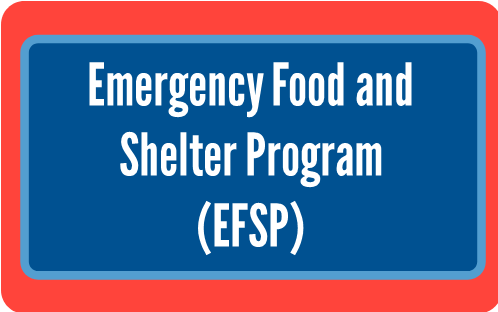Please Click the Button Below to Access the
Phase 41 EFSP Application
The National Emergency Food and Shelter Program (EFSP) was created by Congress in 1983 to help social service agencies provide emergency help to people in need.
The Federal Emergency Management Agency (FEMA) chairs the National Board, and United Way Worldwide is the fiscal agent and staff for the program. During its 38 years of operation, the program disbursed over $5.03 billion to over 14,000 local providers in more than 2,500 counties and cities.
EFSP Guiding Principles are:
-
Efficiency—fiscal administration, reporting and procedural guidance to Local Boards and LROs
-
Accountability—good steward of taxpayers’ dollars through reasonable oversight and transparency
-
Responsiveness—prioritize the allocation of supplemental funds to the neediest areas in the nation
-
Partnership—promote and strengthen collaboration between non-profit organizations and public sector
-
Facilitating—maximizing appropriate local decision-making through clear guidance and training
How Are Emergency Food and Shelter Program Funds Used?
Program funds are used to provide the following, as determined by the Local Board in funded jurisdictions:
-
Food, in the form of served meals or groceries.
-
Lodging in a mass shelter or hotel.
-
One month's rent or mortgage payment.
-
One month's utility bill.
-
Equipment necessary to feed or shelter people, up to a $300 limit per item.
The program is governed by a National Board composed of representatives of the American Red Cross; Catholic Charities, USA; The Jewish Federations of North America; National Council of the Churches of Christ in the USA; The Salvation Army; and United Way Worldwide. The Board is chaired by a representative of the Federal Emergency Management Agency (FEMA).


